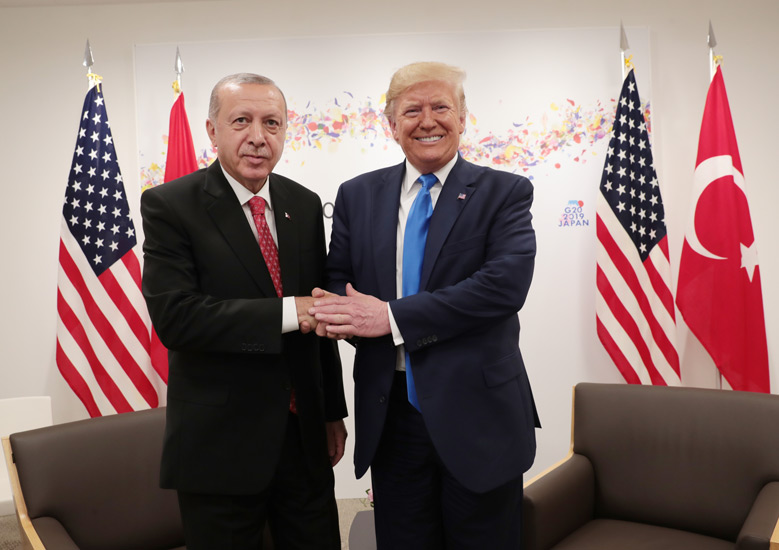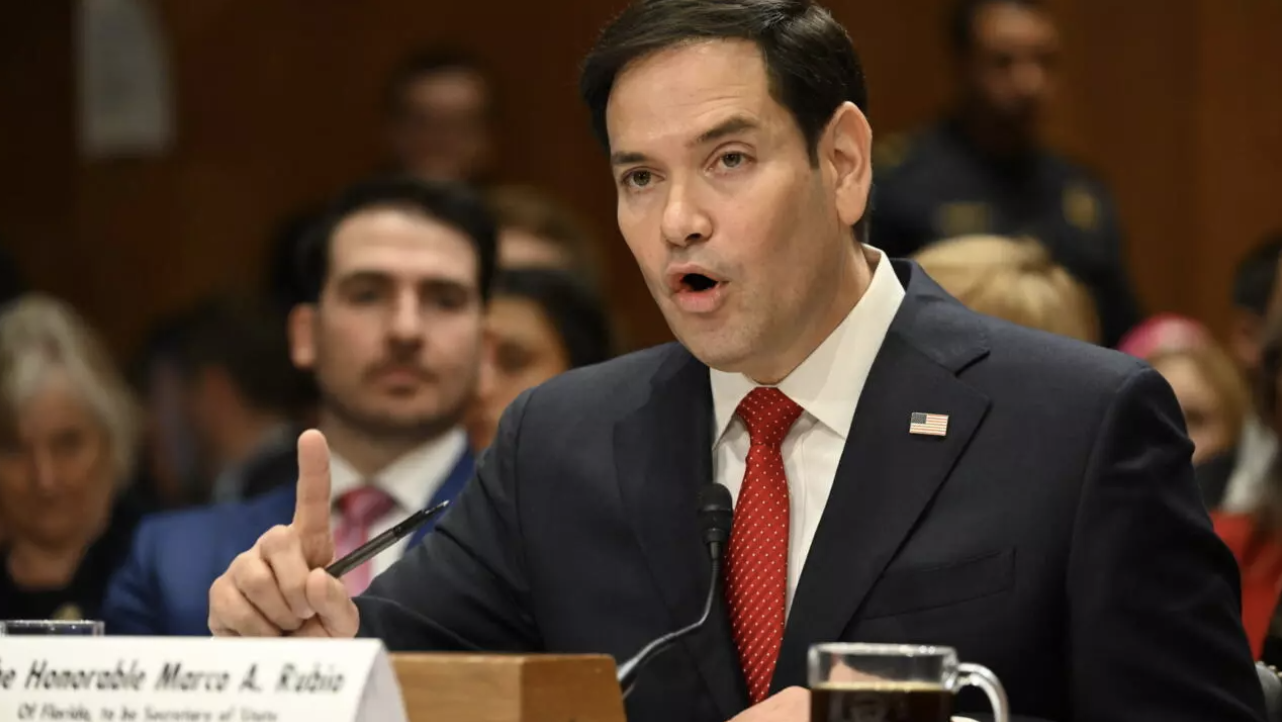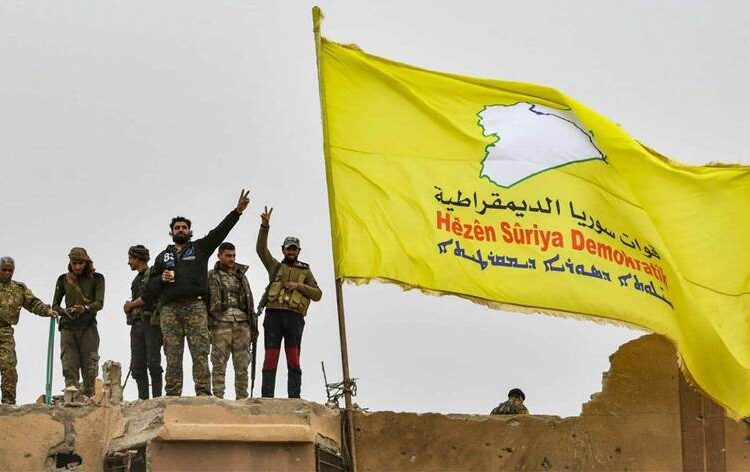Levent Kenez/Stockholm
Tensions between Turkey and the United States continue to simmer over the status of the Syrian Democratic Forces (SDF) in the country’s new transitional phase. While Ankara has reiterated its willingness to consider military action if necessary, US Senator Marco Rubio, during his Senate confirmation hearing for the position of secretary of state on January 15, expressed unwavering support for Kurdish forces in Syria, highlighting the deep divide between the two NATO allies.
Ankara views the SDF, predominantly made up of the Kurdish People’s Protection Units (YPG), as a terrorist organization. Turkey maintains that the YPG is the Syrian branch of the outlawed Kurdistan Workers’ Party (PKK), a group it has been fighting for decades.
Turkey argues that Hayat Tahrir al-Sham (HTS), which ousted President Bashar al-Assad on December 8, should be opposed to the continued existence of Kurdish autonomous structures and the SDF as a bloc since they pose a threat to Syria’s territorial integrity. Turkish Foreign Minister Hakan Fidan strongly reiterated this position last week during a televised interview, stating that the new Syrian government must take ownership of this issue and take the necessary steps to ensure the country’s territorial integrity.
Fidan further argued that the YPG must integrate into the Syrian army without any special status. He indicated that if that fails to materialize, it would be a clear indication of the YPG’s intention to prolong the situation. Drawing attention to the role of HTS in Syria’s new governance structure, Fidan pointed out that the current administration in Damascus is not one that fears war since it achieved the takeover through fighting.
“Turkey’s ultimatum to the Kurds is clear,” Fidan continued. “We’ve communicated this both through the Americans and through the press. The YPG must also expel its non-Syrian fighters from such countries as Turkey, Iran and Iraq.” He expressed frustration that no preparations or indications of intent to comply have been seen so far.
Addressing concerns about military action, Fidan reiterated, “If you don’t want a military operation, the conditions are clear. This applies both from our side and from the new Syrian government. We are waiting for a response.”

However, while the HTS leadership seeks to integrate into the international community, it does not want to confront the West, which supports the Kurds.
Turkey’s primary concern, discussed during a parliamentary committee meeting, is the dissolution of the SDF and their integration into the Syrian army without maintaining their bloc status. On January 14 Deputy Foreign Minister Nuh Yılmaz addressed lawmakers, providing updates on the evolving situation in Syria. Yılmaz emphasized the significant issue of the demand by the “SDF and PKK” to join the proposed new Syrian national army as a unified group, underlining that he sees no distinction between the SDF and the PKK when mentioned together.
“The SDF-PKK’s request to join the national army as a unified entity poses significant risks to regional security and stability,” Yılmaz stated. He emphasized that such a move could mirror precedents in Syria’s history where similar blocs in the armed forces led to internal divisions and, ultimately, coups.
Turkey, Yılmaz explained, has consistently advocated for the formation of a national army inclusive of all segments of Syrian society, devoid of ethnic, sectarian or religious biases. He reiterated that Turkey has formally expressed its objections to the “SDF-PKK’s” demands to the interim Syrian government, underscoring the potential for long-term destabilization if such a proposal were to be accepted.
Yılmaz noted that integrating the “SDF-PKK” as a bloc could heighten tensions in Syria and present a direct threat to Turkey’s border security.
Drawing from past experience, Yılmaz warned that the creation of factionalized military units within a national army has historically resulted in prolonged political and social crises. “To avoid repeating past mistakes, it is crucial to establish a unified and inclusive Syrian national army that represents all communities fairly,” he said.
The second part of the meeting was held as a secret session, with Yılmaz further briefing the lawmakers.
Turkey also wants that control of the camps housing ISIS prisoners and their families, currently under the administration of the SDF, be transferred from the Kurds. This move is seen as part of a broader strategy to limit Kurdish autonomy in the region and enhance Turkey’s influence over security matters in northern Syria.
Ankara has expressed its preference for these facilities to come under the control of the central Syrian government led by HTS. Turkey also suggests that joint management of these prisons with Iraq could be a viable solution, given that the majority of foreign detainees are Iraqi nationals. Turkey is ready to assume responsibility for the prisons holding ISIS members in Syria amid ongoing uncertainty about the future plans of HTS.
Meanwhile, on January 15, when asked whether the US should continue supporting the SDF in the fight against ISIS, Senator Marco Rubio, who is nominated to become the secretary of state in the new US administration, answered, “Yes, absolutely.”
He stressed the importance of backing the Kurds, saying, “It is in the national interest of the United States to have a Syria that protects the Kurds.”
Rubio acknowledged the fragile nature of the ceasefire with the Kurds but emphasized its necessity. He also pointed out that while Syria presents significant challenges, it still offers promising opportunities, despite the complexities introduced by Turkish President Recep Tayyip Erdogan.
Rubio previously voiced concerns over the US withdrawal from Syria during the first Donald Trump administration, particularly regarding the abandonment of Kurdish forces. On October 7, 2019 Rubio criticized the decision to pull American troops from northern Syria, warning of its far-reaching consequences. In a statement released after the announcement, Rubio called the move a “grave mistake” and argued it would have significant repercussions beyond Syria. He said it could escalate attacks on US partners in the Middle East and potentially ignite a broader regional conflict. Rubio also emphasized that the decision would undermine US credibility in the region, encouraging adversaries to view America as an unreliable partner. He urged President Trump to reconsider the withdrawal.

President-elect Donald Trump, who will take office on January 20, made remarks during a press conference at his Mar-a-Lago estate in Florida on January 8 when asked about the future of US troops in Syria. The Pentagon had recently announced that approximately 2,000 US troops are stationed in Syria, nearly double the previously reported figure of 900. Trump refrained from providing a definitive answer on the troop levels, noting that such decisions are part of military strategy. This was interpreted by observers as a shift from Trump’s previous stance of completely withdrawing American troops from Syria.
Trump also referred to Turkish President Erdogan as “a guy I like and respect” and acknowledged that Erdogan had refrained from attacking Kurdish forces in Syria at his personal request in the past.
“He’s the one who didn’t attack certain people after I requested him not to. You know who I’m talking about, the Kurds,” Trump said.












